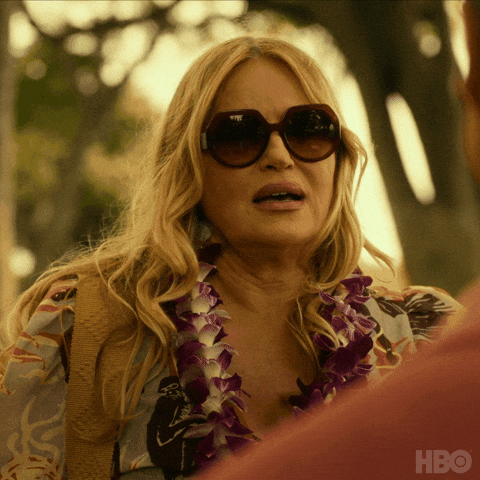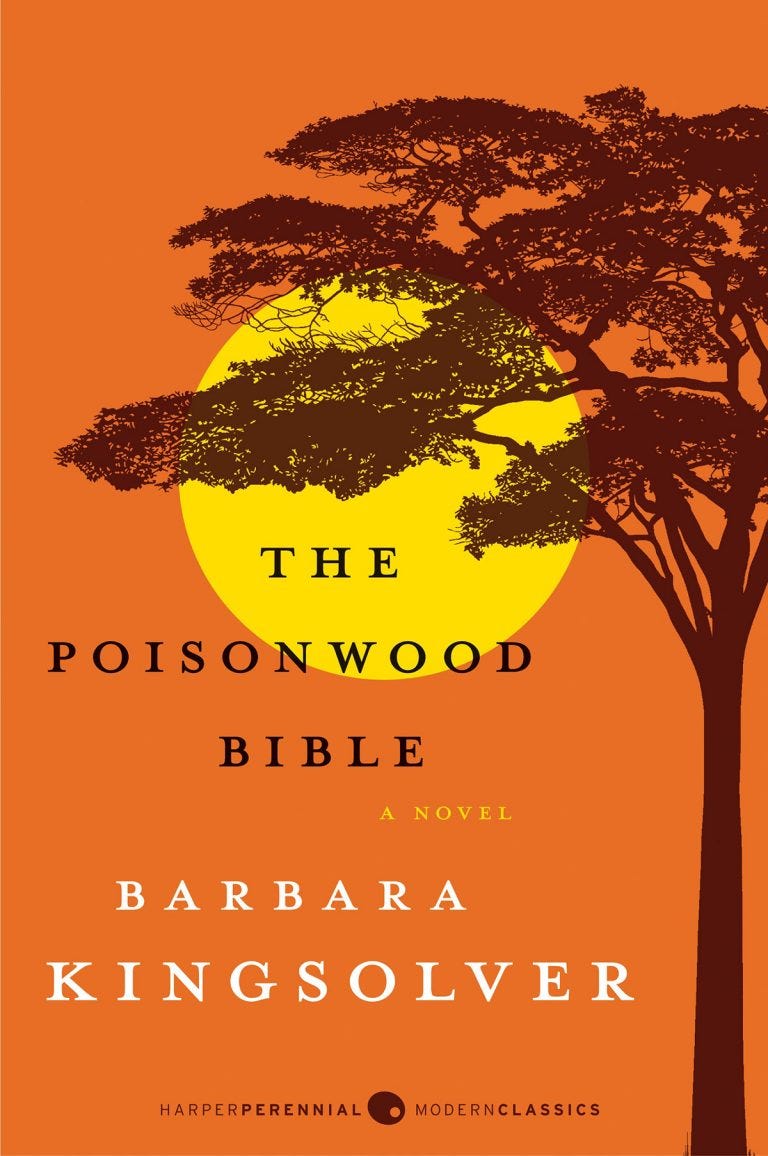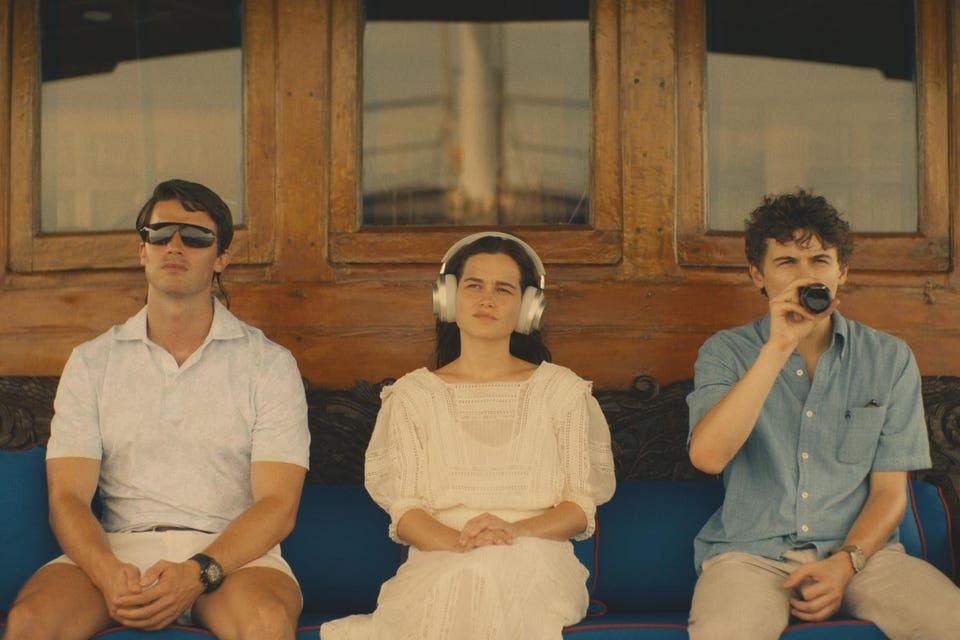* This text contains spoilers for The White Lotus
The third season of HBO’s The White Lotus has wrapped up. Even if it’s the weakest season yet (as often happens with third seasons), it still tackles interesting themes worthy of its massive fan base and countless memes. It’s fun TV that tackles a not-so-glamorous subject: tourism's shallowness. From Hawaii to Italy, and now Thailand, the show unfolds in the exclusive White Lotus resort chain, following different guests and staff at each location.
Every season explores how the wealthy demand special treatment while experiencing travel in a way that never truly challenges them. The tension between locals and tourists is always present in the background — but since the characters rarely leave the resort, it mostly plays out between workers and guests. Each season has its own overarching theme: the first exposes the colonialist exploitation of Hawaii’s land and labor; the second dives into power and sexual dynamics among visitors to Sicily.
This third season feels more all over the place (maybe intentionally?). At its core, it grapples with Westerners failing to grasp Buddhism and the idea of surrendering control. This theme looms over the Ratliff family, and especially the couple Chelsea and Rick.
Another theme we can see throughout is how people use travel to change something about themselves or their relationships. Each group tries to present themselves as trying to accomplish something on this trip. The trio of childhood friends (Jacklyn, Laurie, and Kate) claim they’re reconnecting and affirming their loyalty. But even if they patch things up in the end, I wouldn’t call them good friends. The Ratliffs pretend it’s a family vacation, but their relationships are strained; their daughter Piper’s "thesis research" is just an excuse to escape them. And Chelsea and Rick? They’re seeking closure after his father’s death which is impossible given Rick’s rigid worldview. In the meantime, Chelsea wants to change him, which is never a good idea.
The season’s thesis crystallizes when Greg (the only recurring character across all three seasons) asks Timothy Ratliff, the father who lost everything: Are you running from something, or searching for something in Thailand? The answer, for every character, is both.
And isn’t that how most people approach travel?
A trip somewhere will change me
There are a lot of people who think that traveling will solve all of their problems, but often the problems just follow them around. We see this happen when, like White Lotus' characters, they are not really open to the world around them.
I love traveling myself. It’s one of my greatest joys. Exploring new places, seeing how people live, encountering different nature and wildlife. I’ve been fascinated by it since childhood.
But do others feel the same? Travel, like reading, is universally praised. Frequent travelers are seen as cultured, sophisticated, and even smarter. But how many actually crave exploration, and how many just want the status associated with it?
Destinations can act as identity badges: Paris for the posh, Berlin for the cool, Thailand for the "spiritual." But when mass tourism floods these places thanks to Airbnb, budget flights, and a lot of government subsidies, the fantasy collapses. Crowds make us feel generic. Seeing other tourists shatters the illusion that we are special.
The White Lotus nails this dissonance this season. In episode 4, Rick feels uneasy about the animals at a cobra show. But that happens only after having a closer look at the other tourists there. Even though he also paid to be there, he doesn't want to be like the people attending. He fails to see how his participation contributes to the problem. In the same episode, Jaclyn recoils at a beach pool full of older tourists, desperate to distance herself from them. She wants to be seen as desirable, young and fun — until a splash of water reveals that she isn't.
We all complain about places being overrun with tourists, forgetting that we are tourists. If a place is crowded we are also part and contributing to the crowd, right? Even if we avoid exploitative activities, we’re still part of the swarm in Lisbon, Paris, or Bangkok. Mass tourism ravages ecosystems and local economies. It can be especially detrimental when it involves elephant and camel rides, swimming with dolphins in pools, or cobra shows.
The rich live on islands
Although the main discourse on how tourism is harmful usually focuses on mass tourism, White Lotus criticizes a very specific type of tourism: those who stay in closed resorts.
This isolation is physical on purpose. All seasons are shot on islands, and guests are brought in by boats and received by workers on shore. Workers pamper them in every way, including massages and spa treatments, which are available in all locations. All hotels look and feel the same, except for the art in the rooms and the performers at dinner.
The characters rarely venture outside the resort. If they do, they usually engage in cliché touristic activities such as having gelatos and driving vespas in Italy or they are in other exclusive and separate places from the rest of the country's population such as yachts or mansions. The few locals they engage with are either working for them, performing dilute cultural background performances during dinner or performing sex work.
White Lotus guests are not curious about the country or willing to learn. In the few moments where they are challenged to engage with the locals, they either use them or fleet. As Piper does when she chooses not to follow the Buddhist training because of the lack of organic food and air conditioning. Or the Di Grasso's son, father and grandfather in season two. They claimed Sicilian roots, but didn't even bother to learn the language and fled when their relatives didn't want to engage with random americans showing up at their door.
The show’s real criticism isn’t just that the rich are selfish, it's that they’re incurious. They don’t travel to learn or grow. They don't want to really change themselves. They only want to be in their private bubble with their self-image intact and served 24/7. They want the bland version of the countries they go to and to take whatever they think is rightfully theirs.
Ultimately, The White Lotus challenges viewers to reflect on their own travel experiences. It asks whether we are truly open to learning from the places we visit. Or, are we content to remain in our comfort zones, seeking only the familiar and the convenient? In doing so, the show offers a powerful critique of modern tourism and the ways in which it often fails to live up to its transformative potential.
The Poisonwood Bible by Barbara Kingsolver
A Baptist family moves from the US to colonial Congo around the 1950's to evangelize a small town called Kilanga. The family is formed by Pastor Price, his wife and their four daughters. After the country got independent in 1963, their situation deteriorated more and more, but the family stayed in Congo due to the father's stubbornness.
I’m still reading it and I’m enjoying it quite a bit. The clash between the white family and the whole town shows how clueless they are about life in Africa and in general. Particularly the father's lack of interest in learning anything from the Congolese. There's nothing he wants more than to preach continuously to them. Although it’s centered on a white family, I'm still learning about Congo, a place closely connected to Belgium, where I live.
Triangle of Sadness (2022)
This dark satire movie is probably the closest movie to White Lotus. Nevertheless, due to its European origin, it is much darker and weirder. It tells the story of a couple of models (Yaya and Carl) who win a cruise because of Yaya's work as an influencer. From the beginning we see a conflict between the couple and there's an unsettling feeling throughout the movie. Also, the class conflict between workers and the billionaires on the boat is clear. The movie is okay, well worth watching, but it also doesn't do much. It deserves its Rotten Tomatoes rating of 7.2/10.
The White Lotus (HBO)
The final season got mixed reviews and I understand why. Still, the third season is interesting for introducing themes of Western misunderstanding of Eastern philosophies, particularly Buddhism. Characters like Chelsea and Rick grapple with the idea of relinquishing control, a concept central to Buddhist teachings but alien to Western sensibilities. This struggle underscores the broader critique of how tourism often reduces other cultures to superficial experiences, stripped of their depth and complexity.













Awesome review of White Lotus. I think one of the reasons I love the show is that it keeps me humble as a traveler. A lot of people will watch the show and say, "oh, I don't travel like that -- i really get to know a place," but when I watch 'annoying' tourists in any setting, I'm often reminded that I'm an annoying tourist, too, in ways I can't do much about (like causing delays because I speak the language badly, or contributing to inflated prices). So I'm grateful to everyone that shows kindness to me, and understanding of anyone who doesn't. More than 'don't stay in resorts,' or, 'take a walk around a neighborhood,' the one thing I wish I could hammer into the head of every traveler is: be more humble.
Luiza, I just got back from a Viking River cruise and, wow, did this ever resonate with me. It's the first cruise of any sort we've ever been on. And the price tag was a real stretch for us, but we saw all the ads and thought we'd give it a try. We liked the idea of visiting parts of Europe we probably weren't going to rent a car and drive to. We liked the idea of seeing cities and towns that were built to be approached by river.
What we didn't account for was being stuck for long periods of time on a boat with other American tourists. What I didn't realize about these cruises is that they cater to Americans who want all the discomfort of traveling to a different place removed and smoothed away for them. Everything is curated. Everything is controlled. And you could feel that when my husband and I went off the script by just wandering around, both the people in charge of the cruise and the passengers were deeply confused.
That's just the tip of the iceberg. As a sociologist it was fascinating and we did get to see some amazing things we probably would not have seen on our own. But it's hard to imagine doing it again. It made me think A LOT about what the purpose of traveling is, for others and myself.